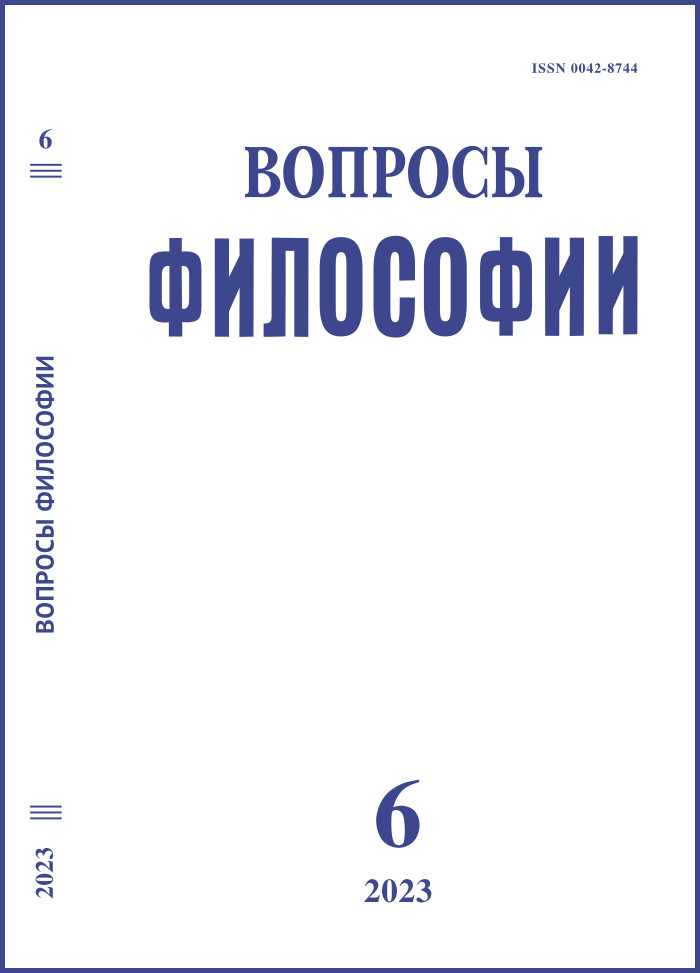Digitalization and Anthropocentrism
DOI:
https://doi.org/10.21146/0042-8744-2023-6-83-86Keywords:
anthropocentrism, digitalization, becoming, individuation, operation, information, complexity, process, metastabilityAbstract
The current situation in society is largely constituted by that wave of computerization, or, as someone say, digitalization, which has covered, in fact, the entire society and sets certain behavioral frameworks at all levels of social communication. Computers organized in a network are coordinated today with the many bodily and mental acts that once constituted the characteristic features of the being called human. What makes a person a special being if the computer network surpasses him in many ways? How much does the concept of “human” change if we consider the latter as one of the agents of a vast digital network? How much do we understand those operations that take place in such a network itself, as well as those that are implemented between a person and a computer? At the same time, it should be taken into account that computers not only transform society. They produce and provoke special recursive connections, both among themselves and with a person, giving rise to a special sensitivity in the latter – sensitivity to the virtual. Virtual reality is not only in the network, it is also updated in the physicality of the individual and in his mentality. So, an individual could integrate with computers and use the advantages that they give: upload themselves to the digital world and be one with computers, choice of communication strategies. However, this question can be somewhat redefined. The ape turned man and Kafka’s “Report to the Academy” says: “No, I didn’t want freedom. All I wanted was an exit… I had to move forward!”. It seems that today it is worth talking not so much about freedom (no matter in what sense of the word), but about finding a way out of a seemingly dangerous, if not catastrophic, situation.

